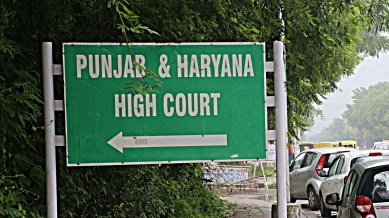Stay updated with the latest - Click here to follow us on Instagram
Civil engineers can’t claim architecture jobs, says Punjab and Haryana High Court
The Punjab and Haryana High Court ruled that the only employer can decide the qualification criteria, and not the courts.

The Punjab and Haryana High Court has dismissed two petitions filed by civil engineers seeking eligibility for the post of Building Inspector (Technical), making it clear that courts cannot declare different qualifications as equivalent.
Justice Harpreet Singh Brar delivered the verdict on August 26, disposing of two petitions filed by candidates, including Nipun Syal and Ankur Kumar Choudhari. In his ruling, Justice Brar emphasised that prescribing qualifications is the employer’s prerogative, not the judiciary’s.
They had challenged the Punjab Public Service Commission (PPSC) for excluding civil engineering diploma and degree holders from applying for 157 advertised posts of Building Inspector (Technical) in the local government department.
The recruitment notice, dated June 17, 2022, specified that applicants must have a diploma in Architecture or Architectural Assistantship or a higher qualification in the same field, along with matric-level Punjabi.
The petitioners argued that their civil engineering qualifications were equal or superior, claiming both courses belonged to the “same trade” and covered similar subjects. They relied on a 2014 report from the Punjab Engineering College, which stated that a diploma in Civil Engineering and a diploma in Architectural Assistantship could be considered equivalent for specific draftsmen roles. They also cited Punjab’s 2015 service rules, which treat the two diplomas as interchangeable for promotions, arguing the same logic should apply to direct recruitment.
The court initially allowed the petitioners to participate in the selection process in July 2022, but later dismissed their plea.
Justice Brar held that the court cannot step in as a “domain expert” to decide academic equivalence. “It is no part of the role or function of judicial review to expand upon the ambit of the prescribed qualifications. Similarly, the equivalence of a qualification is not a matter which can be determined in exercise of the power of judicial review,” Justice Brar said, quoting from a 2019 Supreme Court ruling in Zahoor Ahmad Rather vs Sheikh Imtiyaz Ahmad.
The judgment also cited other Supreme Court rulings reiterating that deciding qualifications is a matter of policy for the recruiting authority. It rejected the petitioners’ reliance on cases where higher qualifications were accepted for related posts, noting that no such statutory provision existed in this case.
The respondents argued that civil engineering only touches upon architecture as one subject, while architectural courses are entirely focused on it, making the two fields distinct. Agreeing, the court said the employer had set a mandatory requirement for a diploma in Architecture or Architectural Assistantship, and it was not for the court to relax that condition.
“Only an expert in the field can truly draw equivalence between two qualifications,” the court observed, adding that the essential criteria for the job lie in the employer’s domain.
It concluded that judicial intervention in such matters would be “beyond the scope” of its powers under Article 226 of the Constitution.